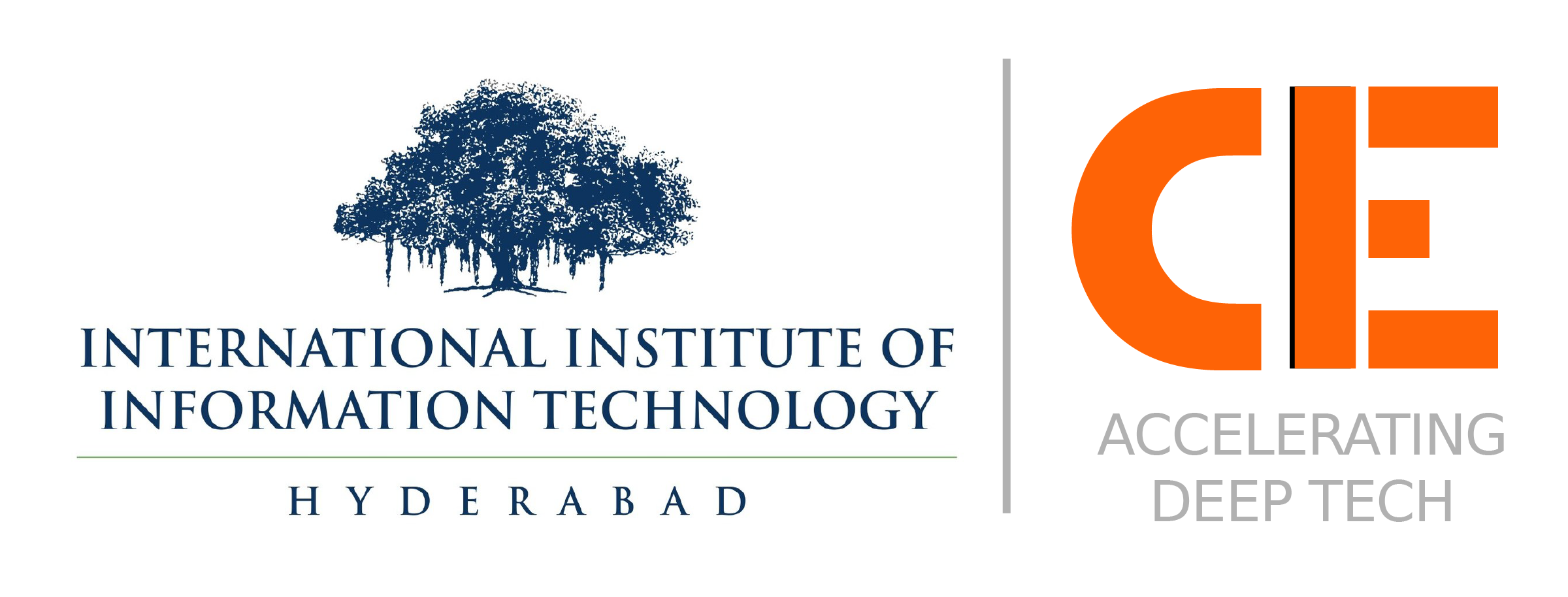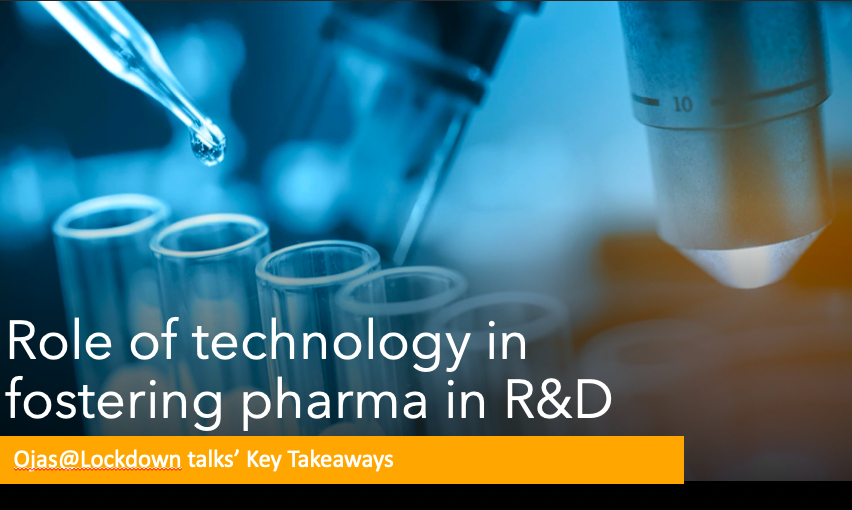CIE conducted an interactive Ojas@Lockdown talks with Dr. P Ratnakar, Practice Head, Life Sciences, Tech Mahindra and Dr. Uday Saxena, Co-founder, Reagene Biosciences, as a part of ResilienceUnlocked series 2.0 – a Lockdown series designed for startups to tide over and unlock their potential during the pandemic.
Key Takeaways from the session
Pharma industry is under scrutiny due to the pandemic. Productivity in the pharma industry has been reducing significantly over the years meaning less number of effective drugs are produced.
The reasons for low productivity can be cited as follows:
- Poor decision making because the tools used in the early stages are not reflective of patients outcomes
- Probability of success is low – decisions are still based on gut/old paradigms
- Large pharma companies who have the resources for innovation and drug production are risk-averse
- Most of the risks for innovation are taken for startups who run out of money
Comparing the pharma industry with the auto industry which is also a regulated industry, the auto industry is seen to have an increase in productivity over the period due to the innovation carried out regularly in the industry.
In Pharma Industry developing a new product takes at least 12 to 15 year and $500mn -$1000 mn investment , the development of this product takes place in 3 phase namely pre- clinical, clinical and launch phase. 90% of the products failed in stage two itself as there is no tool to predict if some medicine is good with animals then will it be good with human beings or not. R&D in Pharma is a long and expensive process and only 1 in 10,000 compounds become drugs and we use manual methods to discover such compounds.
AI and ML are becoming an essential tool in pharma since pharma is more research-based. There has been a 5X increase in revenue in 5 years and 40% CAGR in the pharma industry because of the use of AI and ML in pharma. In the recent times, every pharma company is adopting AI and ML technology at various stages of drugs discovery and production. Novartis collaborated with Microsoft to ensure clinical trials are sped up by using algorithms stacks of Microsoft.
Edge of emerging tech over conventional methods
- AI and ML narrow down a large amount of information into chunks which is manually impossible, thus bringing down costs and reducing biases.
- AI and ML makes literature search more real-time and provide all necessary inputs.
- AL and ML helps in patient stratification, patient adherence and patient monitoring. It reduces the cost involved and the results are more effective.
- Computational biology can indicate which of the chemicals are going to mix. AI and ML reduces the data to a few numbers to decide which ones are going to mix.
How can AI-based company dealing non-contact devices approach pharma companies for selling their products?
- Access whether technology is validated or is it at the hypothesis stage. Pharma companies look for validated technology rather than hypothesis stages ones.
- The technology should have someone on team o someone to advice who is related to the pharma field of study.
- Product should be approved by regulatory bodies
- Do not shy away from going to big pharma companies. They always look for innovative technologies.
Some of the benefits of using AI:
- Takes over mundane repetitive tasks
- Perform complex tasks in a fraction of time
- Produces easy to understand outcomes
- Can be deployed in a hazardous environment reducing risks to humans
- AI systems are more reliable and consistent and they complement human effort.
There are also risks associated with AI systems
- Developing a thinking AI systems are currently too difficult to achieve in practice
- Widespread use of AI raise a number of ethical, moral and legal issues that are yet to be addressed
Insightful? Watch this space for more such takeaways ↑→ https://cie.iiit.ac.in/startup-jukebox/
Know more about our ResilienceUnlocked series here https://cie.iiit.ac.in/resilience-unlocked/
Until next time!
– Sunita Kumari, Team CIE


